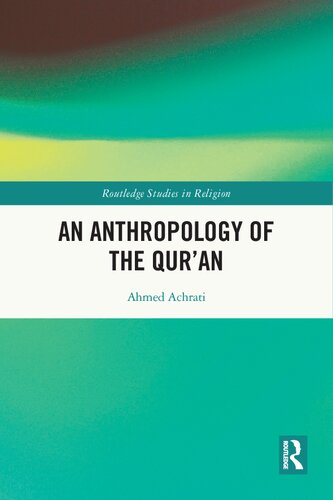

Most ebook files are in PDF format, so you can easily read them using various software such as Foxit Reader or directly on the Google Chrome browser.
Some ebook files are released by publishers in other formats such as .awz, .mobi, .epub, .fb2, etc. You may need to install specific software to read these formats on mobile/PC, such as Calibre.
Please read the tutorial at this link: https://ebookbell.com/faq
We offer FREE conversion to the popular formats you request; however, this may take some time. Therefore, right after payment, please email us, and we will try to provide the service as quickly as possible.
For some exceptional file formats or broken links (if any), please refrain from opening any disputes. Instead, email us first, and we will try to assist within a maximum of 6 hours.
EbookBell Team

4.4
72 reviewsThis book presents an anthropological study of the Qur’an, offering an unprecedented challenge to some of the epistemological and metaphysical assumptions of the tawḥīdic discourses. Combining primary textual materials and anthropological analysis, this book examines transcendence as a core principle of the Qur’an, uniquely signified in the divine name al-Quddūs (the Holy). It shows how the tawḥīdic representations of Allah constitute an inversion of this attribute; examines how this inversion has been conceived, authorized, and maintained; and demonstrates how it has affected Islamic thinking and practices, especially as relates to authority. This book also explores how a return to the Qur’anic primacy of God’s otherness as al-Quddus can influence Islamic thinking and practices moving forward. Therefore, it will be highly useful to scholars of Islamic Studies, philosophical theology, Qur’anic studies, political science, ethics, Anthropology and religious studies.